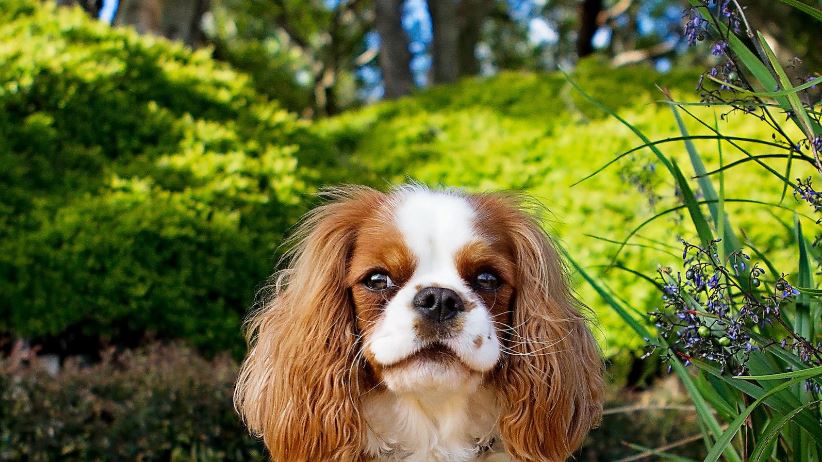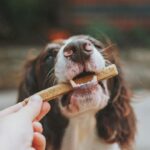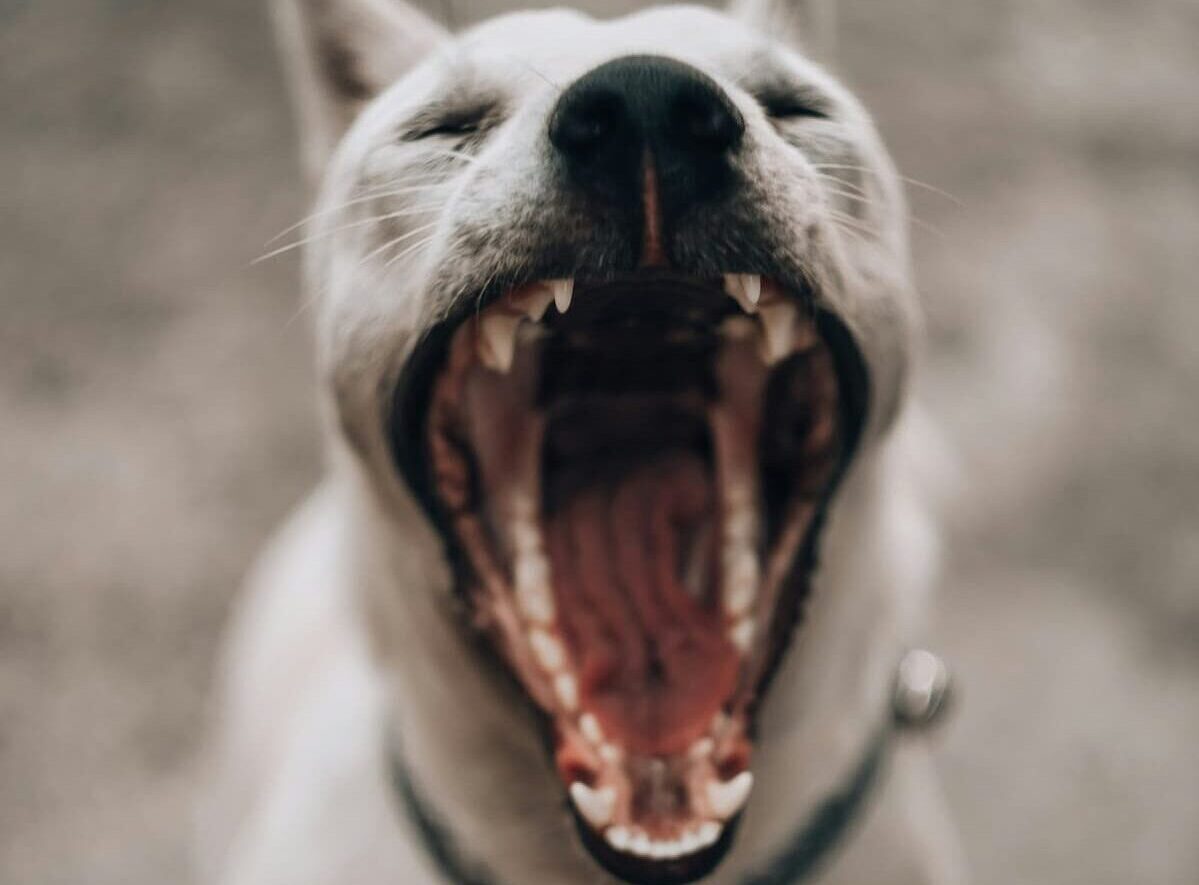Have you ever leaned in for a snuggle with your furry best friend, only to be greeted by an overwhelming odor wafting from their mouth?
Ah, the infamous “doggy breath” strikes again!
While we love our canines unconditionally, their not-so-fresh breath can sometimes leave us wondering what on earth is going on inside their mouths.
Read to answer the gross question: Why does dog breath smell?
Why Dog Breath Smells and What You Can Do About It
Dogs are known for their loyalty, playfulness, and unconditional love.
But let’s be honest, there is one thing about them that can be downright unpleasant – their breath.
We’ve all experienced the moment when your furry friend decides to shower you with kisses, only to be greeted by a less-than-pleasant odor.
So, why does dog breath smell and what can you do about it?
Let’s find out!
First and foremost, it’s important to understand that bad breath in dogs, also known as halitosis, is not uncommon.
There are several reasons why your pup’s breath might have an unpleasant odor.
One common culprit is poor oral hygiene.
Just like humans, dogs also require regular dental care.
If your four-legged friend’s dental routine consists of chewing on a bone once in a while, it’s no wonder their breath is not as fresh as it could be.
Plaque and tartar build-up can lead to dental issues, which in turn, can cause foul-smelling breath.
Another common cause of bad breath in dogs is their diet.
You might be feeding your furry companion a balanced and nutritious diet, but sometimes certain foods can leave a lasting impact on their breath.
Foods with strong smells, such as fish or garlic, can linger in their mouths and contribute to that not-so-pleasant odor.
Additionally, sudden changes in diet or consuming spoiled food may also result in a less-than-fresh breath.
So, what can you do to help freshen up your beloved pooch’s breath?
Well, there are a few simple and effective measures you can take.
First and foremost, establishing a regular dental care routine is paramount.
Brushing your dog’s teeth daily with dog-friendly toothpaste can help remove plaque and tartar buildup, reducing the risk of dental issues and, of course, improving their breath.
You can also consider providing them with dental chews or toys specifically designed to promote oral hygiene.
These can help keep their teeth clean and their breath fresh.
In conclusion, understanding is essential for all dog owners.
Poor oral hygiene and certain foods are common culprits behind that not-so-pleasant odor.
By establishing a regular dental care routine and being mindful of their diet, you can help keep your furry friend’s breath fresh and their kisses a little more enjoyable!
So, don’t shy away from taking care of your pup’s dental health – they’ll thank you with wagging tails and fresher breath.
FAQ
Q: What causes bad breath in dogs?
A: Just like humans, dogs can experience bad breath due to a variety of reasons.
The most common culprit is dental hygiene.
When we neglect to brush our fluffy pals’ teeth regularly, plaque and tartar build-up can lead to gum disease, tooth decay, and ultimately, smelly breath.
Q: Can other health issues contribute to bad breath in dogs?
A: Yes, indeed!
Although dental problems are often the primary cause, bad breath can also be a sign of other underlying health issues.
Digestive problems, such as an upset stomach or gastrointestinal disorders, can create foul odors in your dog’s mouth.
Similarly, kidney disease, diabetes, or even certain infections may also result in that unpleasant breath.
Q: Are certain breeds more prone to bad breath?
A: While any dog can develop bad breath, some breeds might be more predisposed to having stinky mouths.
Smaller breeds, such as Chihuahuas or Yorkies, tend to have overcrowded or misaligned teeth, making them more susceptible to dental issues and, consequently, bad breath.
Q: How can I improve my dog’s breath?
A: Good news!
You can take several simple steps to freshen up your canine companion’s breath.
First and foremost, establish a regular teeth-brushing routine.
Using dog-friendly toothpaste and a gentle brush, aim to clean your dog’s teeth at least 2-3 times a week.
Additionally, providing dental treats or toys that help remove plaque can be quite beneficial.
Q: Are there any products or remedies specifically designed for freshening dog breath?
A: Absolutely!
You’ll find numerous products in pet stores and online that target bad breath in dogs.
Breath-freshening sprays, water additives, and dental chews are popular options.
However, it’s crucial to consult your veterinarian before using any new products to ensure they are safe for your furry friend.
Q: When should I be concerned about my dog’s bad breath?
A: While occasional bad breath is normal, persistent foul smells should raise a red flag.
If your dog’s breath remains consistently unpleasant despite proper oral care, it’s essential to consult your vet.
They will be able to examine your dog’s oral health thoroughly and determine if an underlying medical condition could be causing the issue.
Remember, maintaining your dog’s oral hygiene is a crucial part of overall wellness.
With a dash of toothbrushing, regular vet visits, and a little dental TLC, those smelly doggy kisses will become fresher in no time!
Final Thoughts
From dental disease and poor oral care to dietary choices and pesky bacteria, it’s clear that our canine companions can’t always help the funky odors that emanate from their mouths.
But fear not!
Armed with this newfound knowledge, we can take proactive steps to keep our four-legged pals’ breath as fresh as a daisy.
Regular brushing, dental chews, and professional cleanings are all essential in maintaining their oral health.
And don’t forget about their diet – opting for high-quality doggy dental treats and avoiding food scraps that can lead to foul breath.
Remember, your dog’s breath is just one aspect of their overall health and well-being.
So while we appreciate a cuddle with our furry friends, let’s also make sure to pay attention to their oral hygiene.
After all, a healthy mouth leads to happy kisses and pleasant snuggles – and that’s something we can all appreciate.









